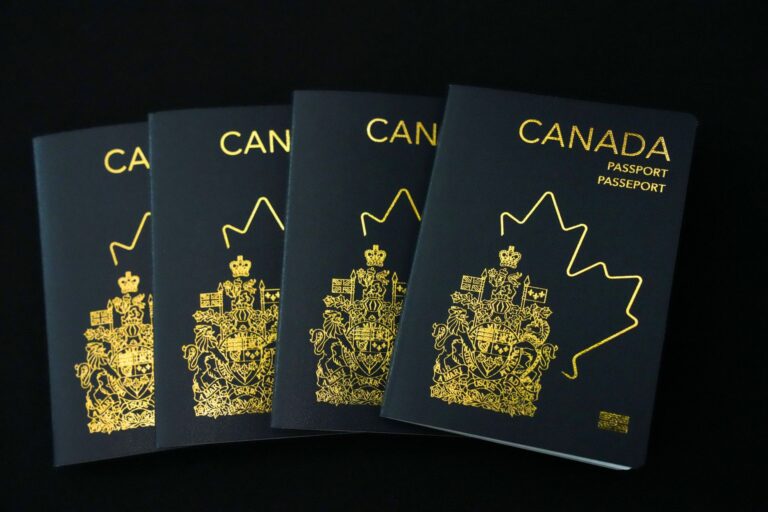The ever-growing administrative burdens that refugee sponsors face when applying to the renowned Private Sponsorship of Refugees Program are an increasing concern to those who make the program work.
In a recent study, Ian Hennessey and I reviewed the four-and-a-half-decade history of program implementation and spoke to 65 of the people involved, including sponsors, civil society organizations, and former and current civil servants.
We concluded the application process for sponsors has become overly complex, resource intensive, and time-consuming. Sponsors struggle with onerous paperwork, growing requirements, and lengthy processing times, sullying what is otherwise a largely positive experience. The problem has gradually increased over time and accelerated in recent years.
Ultimately, under the pressure of administrative burdens, the program is at risk of drifting away from its original objective: to engage civil society in refugee resettlement.
A feather in Canada’s cap
The Private Sponsorship of Refugees Program is the oldest and largest such program in the world. It is a feather in Canada’s cap, and for a good reason. Since its establishment in the end of the 1970s, it has facilitated the arrival and settlement of more than 420,000 refugee newcomers. In recent years, a number of countries have emulated the program and have set up their own sponsorship initiatives with the support of the Canadian government.
In theory, participating in the program appears rather simple. To sponsor refugees, one must be either a Canadian citizen or a permanent resident. Then, one must set up a group of at least five individuals who are willing to take responsibility for providing financial and settlement support to the refugee newcomers for one year after arrival.
The cracks in our admired private refugee sponsorship program
Rebalancing and improving refugee resettlement in Canada
In practice, this means providing a monthly allowance and assisting the newcomers in finding a house, access health care and education, and eventually find employment. The sponsoring group selects the refugee(s) it wants to sponsor, submits its application to Immigration, Refugees and Citizenship Canada, and voilà – the adventure begins.
In practice, however, things look quite different. Or, as our study shows, they have become quite different over the course of more than 40 years of program implementation. The reason is the growing administrative hurdles, which according to many of our research participants, have turned the sponsor application process into a bureaucratic nightmare.
Onerous paperwork
When the program launched at the end of the 1970s, the sponsorship application was only a couple of pages. Sponsors needed to simply detail the composition of their sponsoring group and to attest their willingness to support the newcomers for a year. The process was easy, straightforward, and satisfying.
Today, the application packages that sponsors submit to Immigration, Refugees and Citizenship Canada are dozens of pages long and a source of near-unanimously unpleasant experience. Gathering the required evidence and filling out the mandatory forms takes seasoned sponsors 30 to 35 hours. Those without experience with the program may struggle to complete the application package for weeks or months. Notably, even highly skilled professionals, such as lawyers and university professors, may find it difficult to understand the application guides and fill out the forms.
“Absurd! Absurd! You, know, there was less paper involved in planning the invasion of Normandy than [laughs]… I think it’s bureaucracy gone wild! Why do you need all this information? Because there aren’t enough civil servants to read the damn stuff!” (Former civil servant working on the Private Sponsorship of Refugees Program)
In addition, since 2012, sponsors must include in their application package a form that asks for a detailed description of refugees’ experience of fleeing their country. Obtaining the necessary information to complete this form is not only challenging but also emotionally taxing for both the sponsors and the refugee newcomers.
Stringent requirements
Sponsors are also struggling with stringent sponsorship requirements. In the early days of the program, anyone could prove their financial capacity to sponsor refugees by submitting a confidential statement from their employer.
Nowadays, sponsors must submit a complete breakdown of their financial sponsorship capacity, including income-tax notice of assessment or other tax forms, income slips, and pension statements. This raises confidentiality issues, as it is one member of the sponsoring group who must collect and submit to Immigration Refugees and Citizenship Canada all required documents.
Instead of presenting detailed evidence on their income, sponsors can alternatively set up a trust. In this case, however, they must open an account in the name of the refugee newcomer and submit with their sponsorship application every bank statement since the trust’s creation.
If the sponsorship is supported by multiple donations, it may take hours to collect and submit the full information required for every single donor. The process is again marred by confidentiality issues, which discourage those who are wary of sharing personal information from joining sponsoring groups.
Long processing times
Lastly, as a cherry on the top of the layered cake of administrative burdens, lengthy processing times come to further darken the experience of refugee sponsors. At present, sponsored refugees commonly arrive in Canada two to three years after the submission of the application. Such waiting times increase the material and emotional costs for sponsors and newcomers alike. For example, if a refugee family arrives a few years down the road, the family composition may have changed (e.g., having a newborn, children becoming adults).
This increases the financial support required from sponsors by thousands of dollars – costs that sponsors might not have foreseen. Long waiting times also exacerbate the stress of sponsors and refugees, especially in the numerous cases where sponsors use the program to reunite with displaced family members abroad.
Recommendations to reduce administrative burden
The long-term sustainability of the program largely depends on the willingness of ordinary individuals to (re-)engage in it. The better the experience, the higher the chance that sponsors will participate again and promote the program to friends, neighbours, and colleagues. This is especially important considering the commitment of the Canadian government to increase refugee intake through the program.
Our study draws the following recommendations to Immigration, Refugees, and Citizenship Canada:
- Ease up on the application forms and consider more flexible requirements for repeat sponsors.
- Take measures to better protect sponsor confidentiality in the application process.
- Speed up the application processing time.
- Explore opportunities for cross-checking data between government agencies instead of asking sponsors to provide the information. For example, instead of submitting criminal background checks, sponsors could simply provide their consent to Immigration, Refugees and Citizenship Canada to run a check on their behalf.
- Initiate a constructive dialogue with the broad sponsorship community to improve the application process.
Administrative burdens must be taken seriously. We have reached a point where refugee sponsorship is at risk of turning into a “paperwork experience.” This directly contradicts the original idea of the program, namely to take advantage of the generosity of Canadians and permanent residents. Today’s complex and demanding forms and stringent requirements discourage sponsors and take away from the very essence of why people engage in the program.
Refugee sponsorship should not be a paperwork experience; it is a deeply personal and rewarding experience that has the power to change minds, hearts, and lives. Therefore, it must be supported by an enabling system that will sustain and nurture wide public interest in the program.












